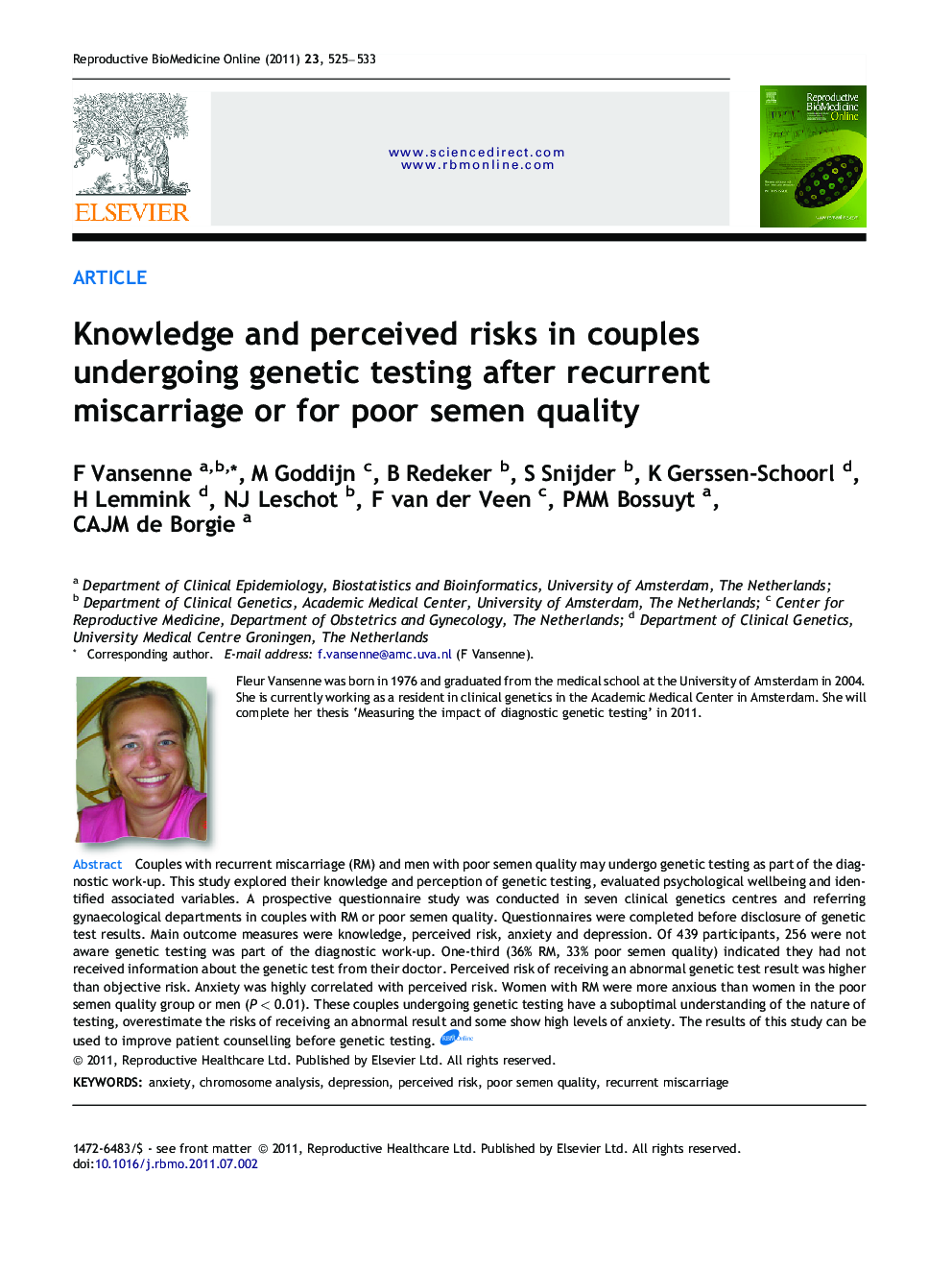| Article ID | Journal | Published Year | Pages | File Type |
|---|---|---|---|---|
| 3971136 | Reproductive BioMedicine Online | 2011 | 9 Pages |
Couples with recurrent miscarriage (RM) and men with poor semen quality may undergo genetic testing as part of the diagnostic work-up. This study explored their knowledge and perception of genetic testing, evaluated psychological wellbeing and identified associated variables. A prospective questionnaire study was conducted in seven clinical genetics centres and referring gynaecological departments in couples with RM or poor semen quality. Questionnaires were completed before disclosure of genetic test results. Main outcome measures were knowledge, perceived risk, anxiety and depression. Of 439 participants, 256 were not aware genetic testing was part of the diagnostic work-up. One-third (36% RM, 33% poor semen quality) indicated they had not received information about the genetic test from their doctor. Perceived risk of receiving an abnormal genetic test result was higher than objective risk. Anxiety was highly correlated with perceived risk. Women with RM were more anxious than women in the poor semen quality group or men (P < 0.01). These couples undergoing genetic testing have a suboptimal understanding of the nature of testing, overestimate the risks of receiving an abnormal result and some show high levels of anxiety. The results of this study can be used to improve patient counselling before genetic testing.Couples with recurrent miscarriage (RM) and couples with men with poor semen quality, may undergo genetic testing as part of the diagnostic work-up to establish the cause. We explored the knowledge and perception of genetic testing in these couples and evaluated their psychological wellbeing. We provided questionnaires in seven clinical genetics centres and referring gynaecological departments to couples with RM or poor semen quality. The questionnaires were completed before receiving the result of the genetic test. We asked couples about knowledge, perceived risk, anxiety and depression. Of 439 participants, 256 said they were not aware genetic testing was part of the diagnostic work-up. One-third (36% RM, 33% poor semen quality) indicated they had not received information about the genetic test from their doctor. Almost all participants overestimated their risk of receiving an abnormal genetic test result. The overestimation was highest in participants who were more anxious. Women with RM were more anxious than women in the poor semen quality group or men (P < 0.01). These couples undergoing genetic testing have a suboptimal understanding of the nature of testing, overestimate the risks of receiving an abnormal result and some indicate high levels of anxiety. The results of this study can be used to improve patient counselling before genetic testing.
